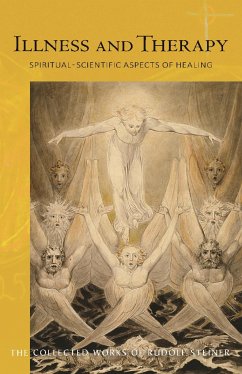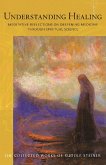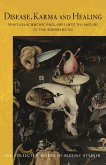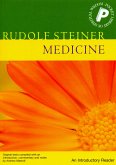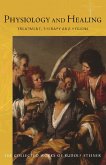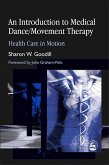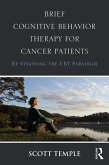'An external view of states of health and sickness must be augmented by what we can also know about the inner, spiritual reality within the human being.' - Rudolf Steiner.
In a series of nine lectures to doctors, pharmacists and students, Rudolf Steiner presents a wealth of medical ideas with numerous therapeutic and diagnostic insights. As with his first series of lectures on medicine held a year previously (Introducing Anthroposophical Medicine), the range, depth and scope of Steiner's subject-matter is breathtaking.
Speaking at the international centre of anthroposophy, the Goetheanum in Dornach, Switzerland, Rudolf Steiner begins by describing the interplay of physical and metaphysical aspects of the human being, presenting a paradigm in which the four bodies - physical, etheric, astral and ego or 'I' - interrelate in contrasting ways with the threefold human organism of head, thorax and metabolism, and with our capacities for thinking, feeling and will. These challenging but enlightening concepts unlock a wonderful diagnostic tool for the appraisal and understanding of patients.
Steiner considers the medicinal actions of various substances - including silica, phosphorus, sulphur, arsenic, antimony and mercury.
Among numerous other subjects, Rudolf Steiner discusses the methodology of medical examination; the treatment of developmental irregularities; the four types of ether; raw food diets; the I and assimilation of food; metal therapy and the actions of lead, magnesium, tin, iron, copper, gold, mercury and silver; the use of root and herbaceous parts and flowers in medicine; the rhythmic balancing process between the action of salutogenic and pathological forces; and the nature of death.
This volume also features Rudolf Steiner's answers to questions, an introductory lecture to eurythmy therapy, a comprehensive introduction, notes and index, colour plates of Steiner's blackboard drawings, and facsimiles and translations of his notes for the lectures.
In a series of nine lectures to doctors, pharmacists and students, Rudolf Steiner presents a wealth of medical ideas with numerous therapeutic and diagnostic insights. As with his first series of lectures on medicine held a year previously (Introducing Anthroposophical Medicine), the range, depth and scope of Steiner's subject-matter is breathtaking.
Speaking at the international centre of anthroposophy, the Goetheanum in Dornach, Switzerland, Rudolf Steiner begins by describing the interplay of physical and metaphysical aspects of the human being, presenting a paradigm in which the four bodies - physical, etheric, astral and ego or 'I' - interrelate in contrasting ways with the threefold human organism of head, thorax and metabolism, and with our capacities for thinking, feeling and will. These challenging but enlightening concepts unlock a wonderful diagnostic tool for the appraisal and understanding of patients.
Steiner considers the medicinal actions of various substances - including silica, phosphorus, sulphur, arsenic, antimony and mercury.
Among numerous other subjects, Rudolf Steiner discusses the methodology of medical examination; the treatment of developmental irregularities; the four types of ether; raw food diets; the I and assimilation of food; metal therapy and the actions of lead, magnesium, tin, iron, copper, gold, mercury and silver; the use of root and herbaceous parts and flowers in medicine; the rhythmic balancing process between the action of salutogenic and pathological forces; and the nature of death.
This volume also features Rudolf Steiner's answers to questions, an introductory lecture to eurythmy therapy, a comprehensive introduction, notes and index, colour plates of Steiner's blackboard drawings, and facsimiles and translations of his notes for the lectures.
Dieser Download kann aus rechtlichen Gründen nur mit Rechnungsadresse in A, B, BG, CY, CZ, D, DK, EW, E, FIN, F, GR, H, IRL, I, LT, L, LR, M, NL, PL, P, R, S, SLO, SK ausgeliefert werden.

